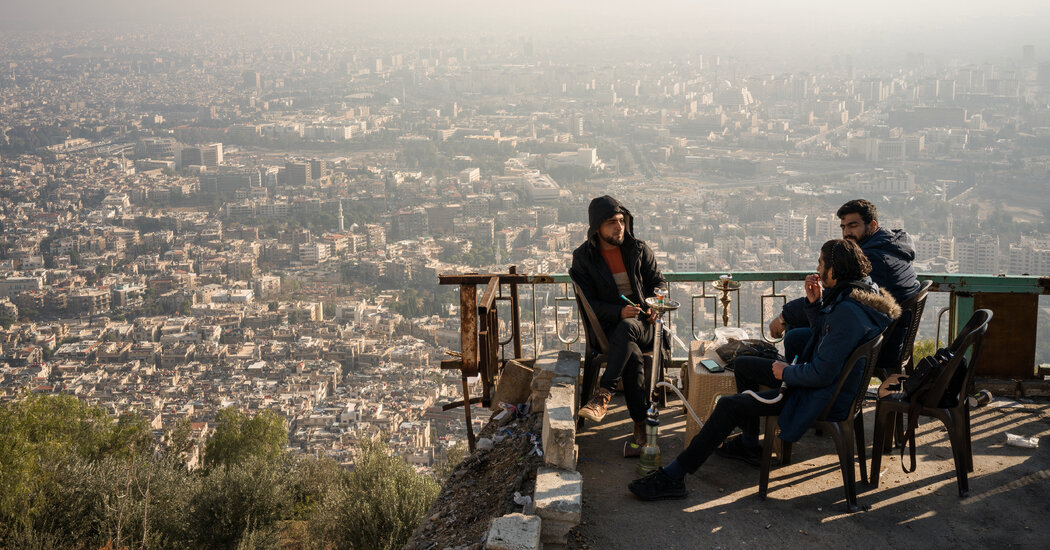The Lebanese prime minister on Saturday headed to the Syrian capital, Damascus, for the first official visit to meet with the new government there, after clashes along the countries’ shared border left several Lebanese soldiers wounded last week.
The prime minister, Najib Mikati, spoke with Ahmad al-Shara, the leader of the new Syrian government, on Saturday afternoon, according to the Lebanese prime minister’s office. Mr. al-Shara leads Hayat Tahrir al-Sham, the Islamist group that spearheaded the lightning offensive that toppled the decades-long rule of Bashar al-Assad, the former Syrian president, last month.
Mr. Mikati’s visit came after the election of Joseph Aoun as Lebanon’s president this week after two years in which the office lay vacant. Mr. Aoun will soon begin consultations on nominating a new prime minister next week.
In Syria, Mr. al-Shara faces the challenge of imposing order on a country that has been devastated by 14 years of civil war that split it into multiple warring regions and spurred a proliferation of armed groups.
Lebanon, like other countries on Syria’s borders, fears that its internal chaos could spill over into its territory. Last week, at least five Lebanese soldiers were wounded in clashes along the Syrian border after Syrian militants fired at Lebanese soldiers. The Lebanese military said its troops were trying to shut down an illegal border crossing in the area.
Mr. Mikati spoke by phone with Mr. al-Shara after the incidents. During the call, Mr. al-Shara pledged that “the Syrian authorities are doing everything necessary to restore calm on the border and prevent the matter from recurring,” Mr. Mikati’s office said at the time.
Further underscoring those challenges, Syrian state media announced on Saturday that its security forces had arrested people accused of belonging to the Islamic State who had planned to commit a major attack in Damascus.
The two men had planned to use explosives inside the Sayeda Zeinab mausoleum, a holy site particularly venerated by Shiite Muslims on the outskirts of Damascus, according to SANA, the government-controlled outlet.
While an international coalition led by the United States has largely beaten back ISIS in its former bastions in Iraq and Syria, the group is still active in some areas, and continues to inspire attacks online.
Here’s what else is happening in the region:
-
Gaza cease-fire talks: Efforts to reach a truce in the Gaza war that would free the remaining hostages were ongoing in the Qatari capital of Doha. Steve Witkoff, President-elect Donald J. Trump’s incoming Middle East envoy, met on Friday night with Mohammed bin Abdulrahman Al Thani, Qatar’s prime minister. The two discussed “efforts aimed at reaching a cease-fire in the Gaza Strip,” among other issues, according to the Qatari foreign ministry. Qatar and Egypt have been mediating between Israel and Hamas — which refuse to negotiate directly — with help from the United States.
-
Rockets from Gaza: Over 15 months in the war between Israel and Hamas, the Palestinian militants are still firing munitions from the Gaza Strip, although both Israeli and U.S. officials say the group’s military capacity has been significantly degraded. Air-raid sirens went off in Kerem Shalom, an Israeli border community, on Saturday after a rocket launch from southern Gaza; the Israeli military said it was successfully intercepted.
